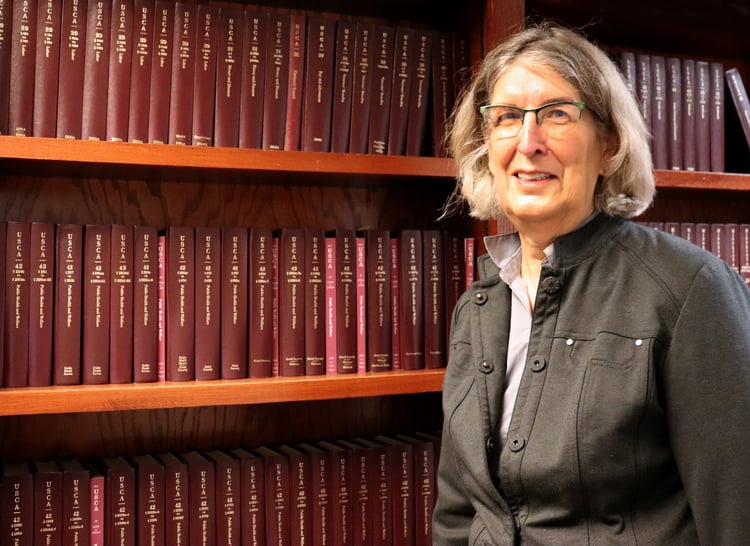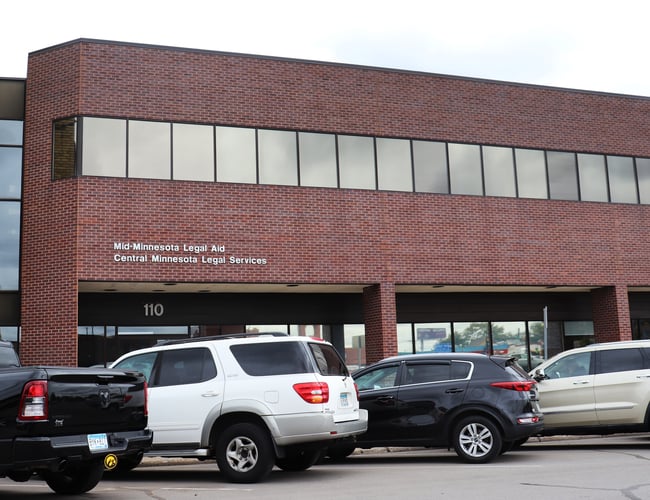United Way of Central Minnesota (UWCM) believes everyone in our community should have access to the resources that help us thrive and achieve our fullest potential.
Even when we are doing “all the right things” that are supposed to lead us to growth and fulfillment, policies, laws and unjust practices may force some of us to become identified as ALICE (Asset Limited Income Constrained Employed)—an acronym reflective of people who work hard yet still don’t make enough money to get ahead. These are people in our community who must choose which bills to pay each month because they don’t have enough money to cover all of their basic needs.
Some of us, then, have limited choices, and life becomes challenging and feels overwhelming. Like Michael, Jada, Maggie and Rafael, ALICE has less access to necessary resources despite attempts to overcome these shortfalls through hard work. They have trouble securing
- enough nutritious food
- safe and healthy housing that is located in a caring community
- an education that leads to meaningful, stable work with sustaining pay
- consistent and affordable childcare
All of these are essential resources that contribute to the overall health and well-being of individuals in our community.
UWCM confronts the complex problems ALICE and those experiencing financial instability deal with from many angles. When we begin to understand the root causes of poverty, we begin to identify the elements that contribute to the adverse outcomes some in our community experience.
meet ann cofell

Ann Cofell, deputy director at Mid-Minnesota Legal Aid, is a United Way of Central Minnesota partner. Her agency offers civil legal services and protections to Central Minnesotans who are most vulnerable at no cost. Clients can access security and opportunity when legal matters would otherwise make that unattainable.
Cofell discusses some factors that hold clients in places where legal counsel might become necessary. “About 70% of the clients we serve are women and they come to us for a variety of reasons. Their relationship may have ended, so they need help fighting for custody to keep their children safe. They may need to secure adequate healthcare or insurance, which helps them keep their jobs. One reason some women lose their job is because they have sick children with no help to care for them while they are at work. If you have a sick child and you have to miss work to take care of them for a day, two, three or even longer, and you don’t get paid time off for that, then you may be at risk to lose your job. Maybe your daycare provider gets sick and you don’t have backup care and have to miss work and eventually lose employment—at Mid-Minnesota Legal Aid we help with the legal issues around that.”
Recent data confirms Cofell’s observations. In 2020, the poverty rate for single-mother families was 23.4%, five times more than the 4.7% rate for married-couple families (US Census Bureau, Income and Poverty in the United States).
legal help
Cofell explains how the economy plays a big part in why people who are low-income may need legal help. “The pandemic, inflation, a possible recession … all of these large-scale problems present many challenges for the people we serve. It’s expensive to work. People need to pay for childcare and transportation. When those costs go up, people may be forced to ask ‘How can I afford to work and pay for rent and buy food?’”
Rising housing costs are another economic factor that stresses someone’s financial stability. “We’re seeing people seek services because renters may not feel empowered to ask for needed repairs. They come to us saying, ‘It’s only 60 degrees in my apartment but we’re afraid to ask our landlord to make the repair. We can’t afford to move.’ Mid-Minnesota Legal Aid steps in and helps navigate those challenges and informs the renter about protection from retaliatory eviction. We help them file paperwork to make sure their housing is safe.”
Cofell says day-to-day life often feels challenging for most of us, but that reality becomes even more difficult for those who face financial disparities. “Being poor is hard and navigating the work of raising kids, keeping a job by not missing work when your children need you, feeding your family, helping your kids with schoolwork and their problems, along with trying to get some rest yourself—it’s an enormous task. One of the biggest misconceptions about low-income people is they’re not hard workers. The opposite is true. They work hard to make a good life for their kids and family.”
Cofell firmly believes that addressing systemic financial stability issues in our community means working to support many pieces of the problem at once. “I recognize that Mid-Minnesota Legal Aid helps with the legal aspects involved in the problems of poverty, but we cannot do all of this work alone. We cannot support families alone. United Way of Central Minnesota makes it possible to help families as they are lifting themselves. United Way helps fund our work so we may hire more attorneys to help more people, but also funds other organizations that address different facets of the problem, like Big Brothers, Big Sisters, to provide mentorship to kids. They fund Promise Neighborhood, which provides homework help, or Boys and Girls Club which provides afterschool care so kids have a safe place to go while caregivers are at work. They support Anna Marie’s Alliance and the Sexual Assault Center, which provide safety and address family trauma. The list goes on and on, but this work involves all of us in the community coming together.”
United Way of Central Minnesota is a connector for many partnerships that create the type of community where everyone thrives, even in the face of complicated challenges.
Cofell understands no person, single organization or tool can eliminate intricate, community-wide issues alone. Sustainable solutions and lasting change involve various individuals, businesses and systems that work together to make a difference for ALICE and all Central Minnesotans. Together, these agencies address systemic disparities that place people in precarious financial places.
Cofell sums it up best: “When my neighbor is safe and doing well, and when that neighbor’s neighbor is safe and doing well, and on and on … then my whole community is safe and doing well. We live in a place where everyone does better.”
The path to becoming safe and doing well could begin by calling 211.
211 is just one of the pieces that facilitates connections to needed support. This free and confidential resource joins anyone to agencies that can help.
Trained service professionals are available 24/7 and offer local assistance for:
- Emergency counseling
- Disaster assistance
- Food and health care
- Insurance assistance
- Employment services
- Veteran services
- Childcare family services
- Addiction
- Mental health support
HELP STARTS HERE
Help is only three numbers away. Reach out today.
.jpg)




